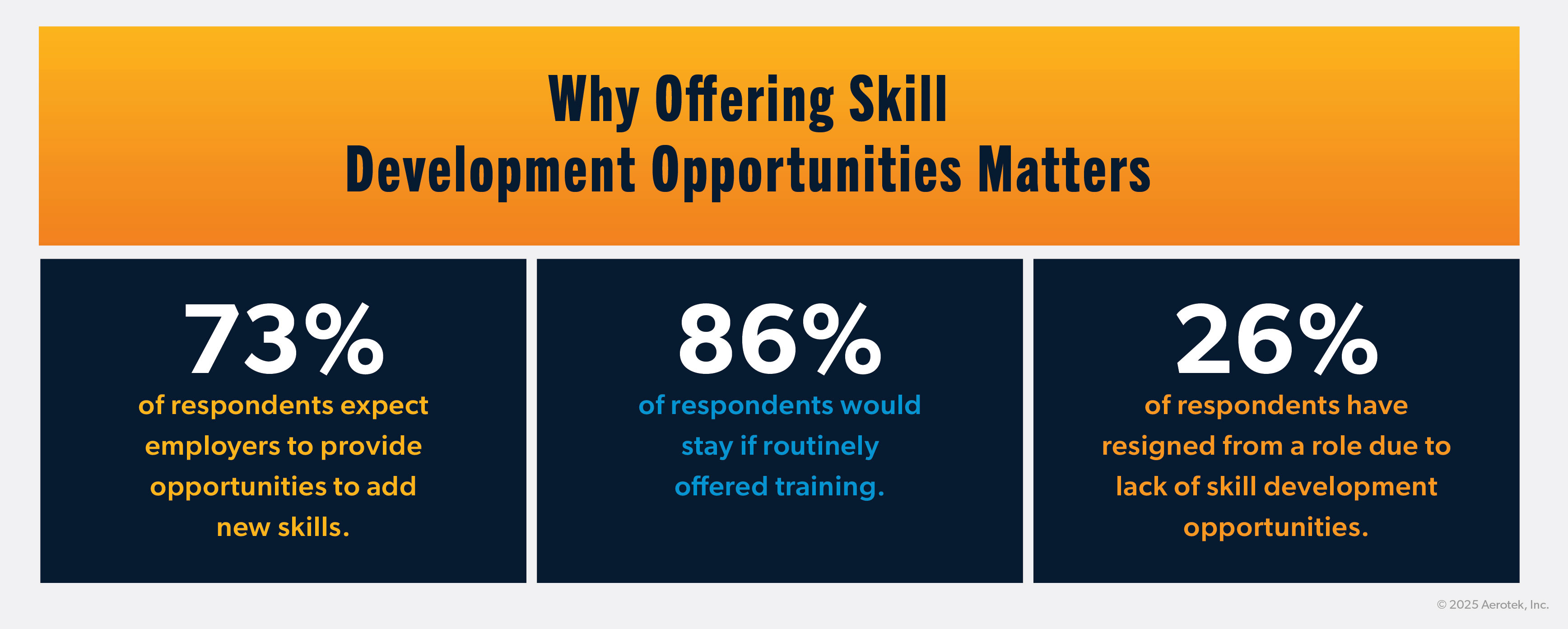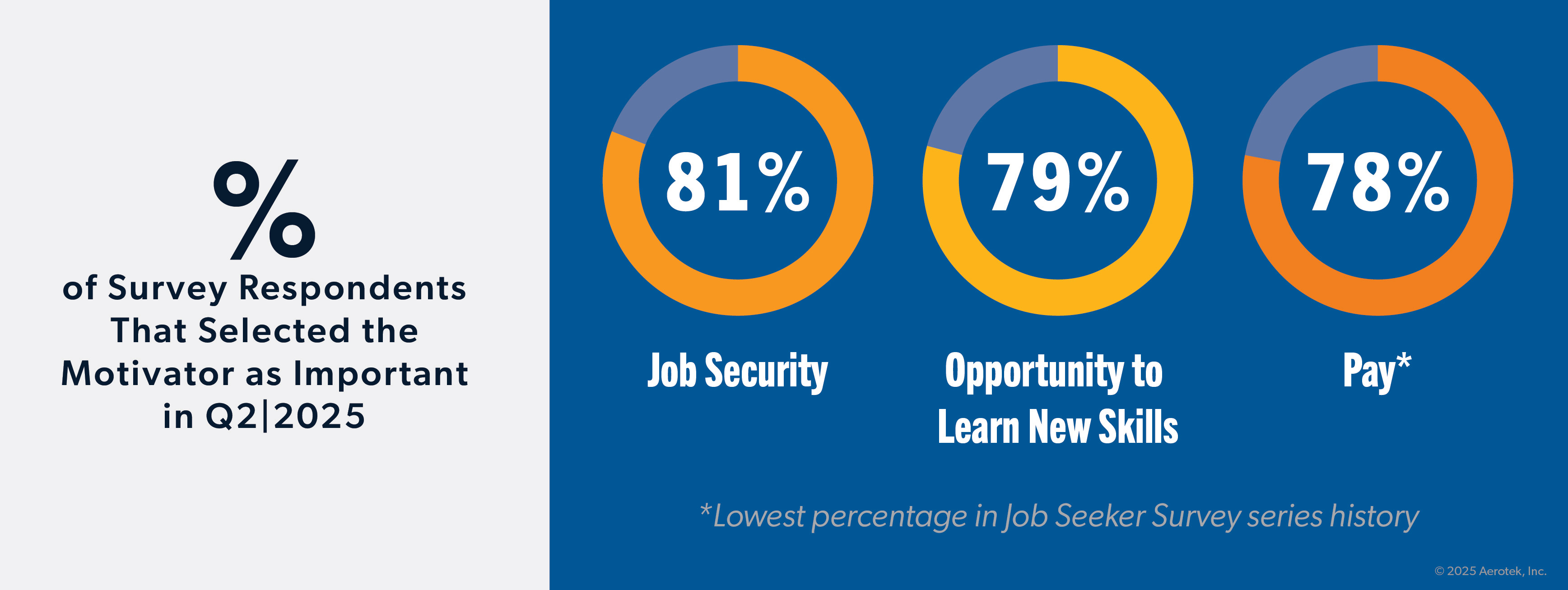Ongoing Training Key to Employee Retention

Offering opportunities for workers to add new skills is crucial for employee retention and satisfaction. By investing in skill development, employers can address workforce skill gaps and enhance overall job performance. Additionally, ongoing training is a key motivator for job seekers, ensuring companies attract and keep top talent in a competitive market.
Job Seekers Want to Add New Skills
Our Job Seeker Survey continuously monitors what motivates job seekers accept a new job. Specifically, we survey applicants for general labor and skilled trades jobs in construction, logistics, manufacturing, aviation and facilities & maintenance. When asked to identify all motivators they found important, “job security” emerged as the top overall motivator when considering all options. Notably, more respondents selected “opportunities to add new skills” than “pay”.

The Importance of Workforce Skill Development for Employers
86 percent of survey respondents said they would stay at a job that routinely offered training. For companies seeking to improve their retention rate, providing skill development opportunities is essential. This is particularly important for those in industries challenged by the skilled labor shortage.
Employers aim to secure workers who possess the skills required both current and future needs. This task is becoming increasingly challenging as a significant portion of skilled trades professionals retire from the workforce. Offering opportunities for skill development demonstrates an investment not only in the long-term success of employees but also in the sustainability and longevity of the company.
It’s important for employers to acknowledge that they don’t have to conduct skill development or upskilling programs on their own. By developing relationships with staffing partners, trade schools and other local organizations, companies can provide growth opportunities that help attract and retain workers.
Investing in workforce skill development is a strategic imperative for employers. Not only does it enhance employee satisfaction and retention, but it also contributes to the overall growth and competitiveness of the company. By leveraging partnerships with local educational institutions, businesses can offer valuable learning opportunities that benefit both the organization and its employees. Ultimately, fostering a culture of continuous learning and development is key to sustaining a skilled and motivated workforce in today's dynamic job market.
